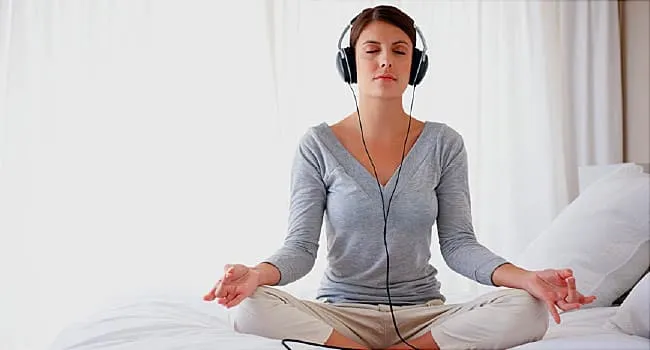
Are you one of millions of Americans who use a smartphone app to ease stress and anxiety? Popular choices include Calm, Headspace, Breathe2Relax, and Happify.
These apps teach relaxation techniques that aim to ease symptoms of anxiety and related health conditions, including depression, sleep and digestive disorders, and substance use. They deliver daily, weekly, and/or monthly programs that users listen to like a podcast -- and rely on like a personal life coach in their pockets.
Interestingly, their popularity parallels an upward tick in anxiety: The American Psychiatric Association's annual poll on U.S. anxiety levels shows a five-point jump between 2017 and 2018, from 46 to 51 on a zero-to-100 scale. Research published last year in the Journal of Developmental and Behavioral Pediatrics revealed that between 2007 and 2012, diagnoses of anxiety among children ages 6 to 17 rose by 20%. Another recent study connects smartphone use to people’s anxious state.
Technology, thus, can be a double-edged sword with its nonstop, alarmist news alerts, online arguments, and "fear of missing out." Can it also help address -- and even correct -- the problem?
Author and mindfulness instructor Tamara Levitt, who writes and records guided meditations for the Calm app (and who has studied and practiced the art for 3 decades), believes meditation, no matter how it's delivered, can yield powerful results. "Mindfulness is the act of paying attention to the present moment," she says. People get in trouble with stress and anxiety, she says, because staying present can be difficult. "Our minds are often in the future, worrying about something that's going to happen, or we're ruminating about the past," she says. "Meditation brings us back to the moment we're in."
Focusing on breathing techniques, Levitt says, is fundamental because the breath anchors our attention. "We battle anxiety because our minds are filled with fearful thoughts. Mindfulness keeps us in the present, where we can calm ourselves down."
But do users of these apps truly reap health benefits? While different forms of meditation have been practiced across cultures for thousands of years, Harvard doctor Herbert Benson first introduced "the relaxation response" in the 1970s. This technique has gained widespread acceptance by therapists and doctors as a way of relieving symptoms from stress and anxiety disorders.
While such smart apps vary, and the American Psychiatric Association counsels caution when choosing one, many use deep breathing and relaxation techniques. According to a 2018 study published in the journal Health, they can enhance in-person therapy, which can be costly, for better mental health.
Calm Yourself
Stress and anxiety can wreak havoc on the human body. Learning to better handle life's tense moments and bouts of worry can lead to a healthier, happier you. Conditions linked to stress and anxiety include:
Heart trouble: In a Nurses' Health Study, women with the highest levels of phobic anxiety were 59% more likely to have a heart attack and 31% more likely to die from one than women with the lowest anxiety levels.
Insomnia: More than 40 million Americans have long-term sleep disorders, with stress and anxiety causing or making them worse, according to the National Institutes of Health.
Abdominal pain: While stress doesn't cause irritable bowel syndrome, it can make symptoms -- including cramping, bloating, and diarrhea -- worse, according to the Mayo Clinic.
Panic attacks: Panic disorder affects 6 million American adults, or 2.7% of the American population, according to the Anxiety and Depression Association of America. Women are twice as likely to be affected as men.
Find more articles, browse back issues, and read the current issue of WebMD Magazine.

